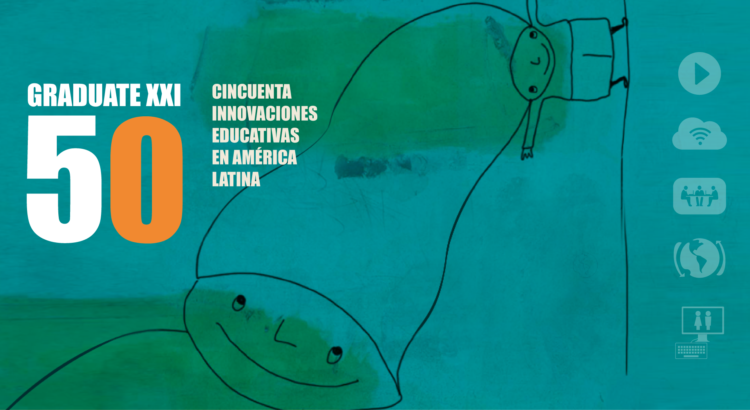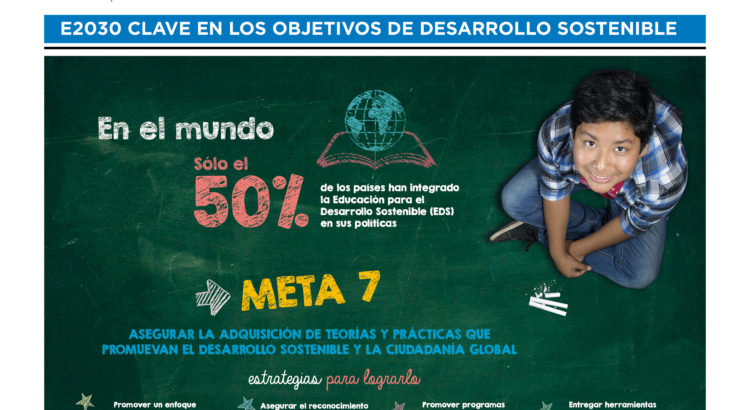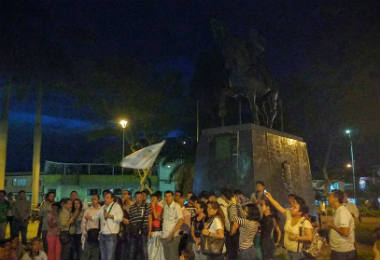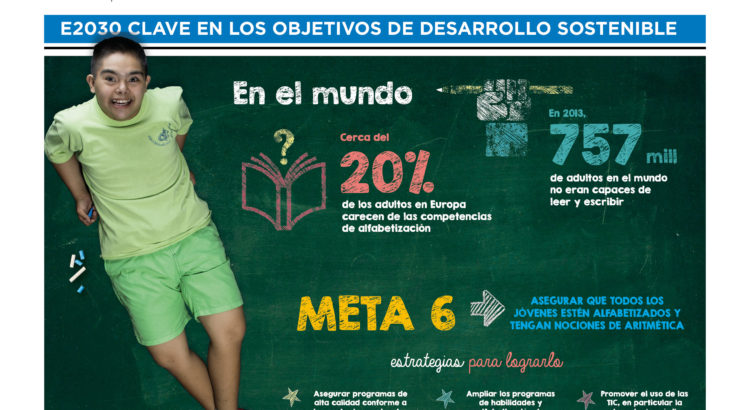Argentina/07 marzo 2015/ Autor: Micaela Urdinez/Fuente:La Nación
Alumnos que como robots copian del pizarrón, memorizan contenidos repetidos hasta el cansancio por profesores también cansados, que asisten sin entender a materias divididas por bloques fijos de horarios, que son evaluados en exámenes tradicionales y sin atisbos de pensamiento crítico, muestran una de las tantas escenas mudas de una película que todos los días se filma en la mayoría de las escuelas del país.
Son demasiadas las voces que sostienen que se está educando como en el siglo XIX a estudiantes del siglo XXI. Que a pesar de todas las discusiones, planteos teóricos y avances legislativos, la estructura educativa sigue siendo precaria para hacer frente a los desafíos que se presentan hoy en las aulas.
¿Si la realidad demuestra a cachetadas que los alumnos no están aprendiendo, cómo hacer entonces para innovar sin echar por tierra todo lo ya construido? Porque el objetivo no es empezar una escuela de cero, sino tener la apertura necesaria e innovar, para adoptar nuevas metodologías, darle un protagonismo diferente al alumno, desafiar el status quo, introducir otras disciplinas al aprendizaje.
«Innovación en el aula se refiere a diversos aspectos, cubren un espectro muy amplio, desde el uso de tecnología, estrategias pedagógicas, organización del espacio del aula, colaboración entre docentes. El objetivo es lograr la experiencia del aula más efectiva para atrapar el interés de los alumnos, generar motivación, y cumplir con los objetivos de aprendizaje que los miembros de la escuela deben acordar. Innovar es animarse, es confiar que todos pueden aprender más y mejor, tanto los alumnos como los profesionales, sin formatos rígidos», explica Agustina Blanco, consultora en Educación de la Universidad de San Andrés, Enseña por Argentina y Proyecto Educar 2050.
Porque si bien todos los especialistas están de acuerdo en que la legislación educativa en el país es de avanzada y marcan un camino interesante a seguir, hace falta llevar esa impronta al pupitre. «Cambian programas, cambian los nombres, cambian los boletines, cambian las asignaturas pero parece que la escuela casi no ha cambiado. Tener una buena escuela es un derecho, no puede ser una suerte. Tenemos que cambiar nosotros, docentes y directivos. Y para eso no podemos seguir pensando en un trabajo individual, que enferma y nos aleja de la escuela querida. Son los docentes y directivos, trabajando en equipo los motores del cambio y la innovación», afirma Victoria Zorraquin, Directora Ejecutiva de Educere Docentes por un Mañana.
Con la audacia de salir de la noción de arte como algo extracurricular y pasar a la comprensión del arte como algo transversal a los contenidos curriculares, nació el Programa Arte, Bienestar y Creatividad en la comunidad (ABC), de la mano de la Fundación Crear Vale la Pena y que con el tiempo se transformó en política pública. A partir de este año, ABC Buenos Aires se incorpora como un programa del Ministerio de Educación porteño.
«Crear Vale la Pena nació en una escuela parroquial en la Cava llamada Santo Domingo Savio. El éxito del programa y las características del mismo hicieron necesario trasladarlo a un espacio cultural de encuentro propicio al programa de talleres y producciones artísticas que desarrollamos como herramientas de integración social y generación de oportunidades para los jóvenes. Sin embargo entendimos que habíamos construido un concepto de aula taller y de responsabilidad social de los jóvenes sobre su comunidad que debía aportarse al descubrimiento de nuevas experiencias de encuentro y creatividad en la escuela», cuenta Inés Sanguinetti, presidenta de Crear Vale la Pena.
Fue así que durante 7 años desarrollaron un programa extracurricular en escuelas con el área de Educación de Flacso y conocieron en Aberdeen (Escocia) una experiencia similar pero transversal a la currícula. «Nos invitó el Scottish Arts Council a asociarnos a un gobierno, y a una universidad y acordar un programa de intercambio y de instalación de esta práctica como política pública de 3 años. Invitamos a los gobiernos de Nación, Provincia y Ciudad y quienes tuvieron la voluntad política de abordar este laboratorio fue el gobierno porteño y la Universidad de San Andrés», agrega Sanguinetti.
La innovación consiste en sumar un nuevo actor en la comunidad educativa: el «artista vinculante» y su tarea es introducir la lúdica y la creatividad en todas las materias como preparación del medio para el aprendizaje y la convivencia en el aula, interaula, y con la comunidad. El rol de este artista es ponerse a disposición como colaborador en la preparación del medio para el aprendizaje de contenidos curriculares de los docentes, de la facilitación de experiencias interaula al servicio del proyecto escolar, y del reforzamiento de vínculos interinstitucionales entre escuela, espacios de atención primaria de la salud y espacios culturales y deportivos para permitir abordajes complejos de las problemáticas en los territorios.
«El gran logro ha sido generar aulas de mayor calidad desde la idea de que el arte alienta la curiosidad, ésta impulsa a la creatividad y eso es lo que logra la innovación individual y colectiva. Además todo eso tiene que ver con aulas con mayor bienestar emocional y felicidad para jóvenes y adultos», resume Sanguinetti.
En una articulación de grandes escalas, ABC en la comunidad consiste en una iniciativa conjunta de la Fundación Crear Vale la Pena y la Universidad de San Andrés, en asociación con el Ministerio de Cultura, el Ministerio de Educación y la Secretaría de Hábitat e Inclusión Social del Gobierno de la Ciudad de Buenos Aires, la Universidad de Aberdeen (Escocia), Creative Scotland y el City Council de Escocia , y cuenta con el apoyo del British Council en Argentina. Tiene el propósito de mejorar los aprendizajes, la educación, la cohesión social y el compromiso de la escuela con la comunidad a través de las artes, la cultura y la creatividad.
«Desde el punto de vista de la gestión es un éxito en materia de modernización del Estado construir durante 3 años un consorcio público privado entre estado, OSC, universidad y empresa y que el mismo Estado logre integrar a tres ministerios en una acción articulada hacia el mismo objetivo. Esto es la materialización del famoso incidir en el diseño de políticas públicas desde la sociedad civil», agrega Sanguinetti.
Durante 2012, 2013 y 2014 se realizó una experiencia piloto de esta iniciativa en 13 escuelas de contextos vulnerables de Ciudad Oculta, Cildañez, villa 31, villa 21-24 y villa 20 con resultados muy alentadores. Según evaluaciones realizadas por la Universidad de San Andrés, el 91% de los estudiantes de nivel medio ha destacado que las clases de ABC son más interesantes o motivantes, el 100% de los docentes (Inicial- Primario- Medio) percibe un aporte positivo para que sus alumnos aprendan, el 71% de los estudiantes (nivel medio) opina que las clases de ABC los ayuda a trabajar y a pensar en equipo con sus compañeros, el 97% de los docentes (Inicial- Primario- Medio) cree que las implementaciones de ABC mejoraran la convivencia entre los alumnos y el 91% de los docentes dice que los artistas aportaron nuevas herramientas de enseñanza.
«En la primera reunión con Crear Vale la Pena nos dimos cuenta de que el programa sería ideal para aplicarlo en contextos vulnerables y así generar impacto en la comunidad. Es una iniciativa que busca fortalecer el aprendizaje emocional, y devolverle al chico la alegría por aprender. No te plantea nuevos contenidos sino que es una metodología diferente de aprendizaje. El programa incorpora el aspecto cultural en la educación, en la sociedad civil y al chico lo toma en su contexto, al igual que al docente», explica Ana Ravaglia, de la Subsecretaría de Unidad de Proyectos Especiales del Ministerio de Educación porteño.
A través de diferentes lenguajes artísticos (expresión corporal, artes visuales, teatro, música, danza, cerámica, lenguajes artísticos combinados) se buscan nuevas maneras de que los alumnos incorporen contenidos curriculares como ciencias sociales, historia, matemática, informática, inglés, ciencias naturales y educación cívica, entre otras.
Hasta el momento, fueron 59 artistas, 48 docentes y 1260 alumnos los beneficiados por el programa y desde el gobierno porteño apuestan a que cada vez sean más.
«La maestra maneja los contenidos y el artista encuentra una manera creativa de enseñar. Tienen que funcionar como una dupla. Se enseña historia a través de la música o geografía desde la danza. El arte es maravilloso en la escuela. Cuando irrumpe desarrolla la inteligencia emocional. Y vos lo que aprendés con placer y emoción, te lo llevás para toda la vida», sostiene Ravaglia.
En Argentina, así como en la mayoría de los países de Latinoamérica, aún persisten prácticas basadas en la enseñanza de contenido de diseños curriculares rígidos, a través de la transmisión de información y la memorización. Además, persisten prácticas docentes individualistas (puertas de aulas cerradas, aisladas), donde hay poca colaboración entre docentes para reflexionar sobre estrategias pedagógicas o métodos innovadores que busquen cumplir objetivos de aprendizajes predeterminados.
Por eso, hace falta generar las condiciones para apostar por la innovación educativa. Para Claudia Romero – Directora del Área de Educación de la Universidad Di Tella -ésta sucede sólo cuando se alteran los aspectos estructurales del formato escolar y tiene efecto en los aprendizajes de los alumnos. «Para eso, tiene que afectar el tiempo, el espacio, los intercambios, los agrupamientos y el proceso de transmisión de la enseñanza», señala.
Blanco, por su parte, agrega que una pedagogía de excelencia hoy comprende poder manejar estrategias diversas, motivadoras y desafiantes en el aula. «Implica, además, tener la habilidad de acompañar la diversidad en los modos y tiempos de aprendizajes individuales de los alumnos, hacer buen uso pedagógico de las herramientas tecnológicas, diseñar planificaciones basadas en la indagación y generación de preguntas que inviten al razonamiento, al pensamiento crítico y a la participación, a proponer actividades didácticas donde los alumnos deban resolver problemas reales, a trabajar por proyectos».
Las propuestas de mejora pueden surgir desde el clima en el aula, la capacitación docente, los diseños curriculares o cualquier aspecto de la estructura educativa. Cuando el desafío es tan vasto, muchas veces es difícil decidir por dónde arrancar. En el caso de Cimientos, eligieron poner el foco en la cúpula.
A través de su programa Ronda de Directores – que arrancó en 2012 – un grupo de 12 directores de escuelas secundarias de Berazategui y sus 4 supervisores, comenzaron a generar espacios de capacitación continua para el desarrollo de habilidades pedagógicas que les permitieran asesorar a sus equipos docentes en procesos de mejora de las prácticas de enseñanza, para que fueran cada vez más inclusivas.
«Nuestro punto de partida fue una investigación realizada en una zona del conurbano bonaerense donde iniciamos el programa. Se trató de un proyecto que se propuso mirar los procesos de enseñanza y aprendizaje que tenían lugar dentro de las aulas de las escuelas a las que concurre población vulnerable socioeconómicamente. Se recogieron evidencias acerca de las características que tenían las clases en esas escuelas, donde -salvo escasas y valiosas excepciones- las prácticas de enseñanza daban lugar a aprendizajes «de baja intensidad», rutinarios, y las tareas propuestas por los profesores, estaban más ligadas a la memoria que a la comprensión. Entendimos que una de las formas de que esto empiece a cambiar era trabajar con los directores, animarlos a observar clases y a proponer otras estrategias», explica Cecilia Oubel, coordinadora del Programa de Apoyo a Escuelas de la Fundación Cimientos.
La Ronda está integrada por representantes de los equipos directivos de las escuelas participantes, que desarrollan la práctica en común de observar, analizar y discutir la enseñanza y el aprendizaje en sus escuelas. Cada grupo de escuelas participa de 8 encuentros con frecuencia mensual a lo largo del año, y de dos encuentros de cierre al finalizar cada uno de los módulos de trabajo.
Durante los encuentros se analizan clases observadas y registradas en sus propias escuelas, así como otros materiales vinculados con la enseñanza, entre ellos: pruebas, carpetas de los estudiantes, etc. Asimismo, durante el segundo año de la capacitación, además de continuar con la observación de clases, se elaboran guías para la observación de clases, y se diseñan y ponen en práctica planes de mejora respecto de un problema de la práctica de enseñanza diagnosticado en cada escuela participante. Implica abrir las puertas de las aulas para que directores de otras escuelas observen para mejorar sus estrategias de intervención pedagógica.
«El objetivo es desarrollar capacidades en los directores para gestionar la escuela con un foco muy fuerte en el microespacio del aula, qué es lo que sucede adentro de las aulas, qué es lo que los profesores enseñan y qué es lo que los alumnos aprenden. Principalmente la mirada está puesta sobre el mundo pedagógico y eso se ve en las actividades», agrega Oubel.
Los impactos más importantes en los directores fueron que lograron modificar su perspectiva de la gestión escolar al comprender que ésta debe tener como foco primordial el núcleo de la enseñanza; fortalecieron su liderazgo pedagógico sostenido ahora en un mayor y mejor involucramiento tanto en la observación de la realidad de las aulas (observación de clases) como en la retroalimentación formativa a los profesores desde un enfoque proactivo; comprendieron y asumieron su responsabilidad (antes delegada enteramente en los profesores) sobre el éxito y el fracaso de los estudiantes; y otorgaron mayor y especial atención a qué y cómo se enseña y qué y cómo se evalúa en su escuela y en su distrito.
Para Silvana Rodríguez, Directora de la EEM N°15, de Berazategui, la capacitación le sirvió «para repensar mi rol como directora, para acompañar a los docentes en sus prácticas pedagógicas, para mejorar mi rol como asesora, para tener una herramienta. Trabajamos con la escalera de la retroalimentación con la idea de acercarnos al docente, preguntarnos cómo está trabajando, cuáles son sus tareas, qué está haciendo con los alumnos en el aula».
Para Romero, muchas veces se confunde la innovación con cambios en los diseños curriculares o la inclusión de las nuevas tecnologías. «Se han renovado los diseños curriculares en el país y en todas las provincias. Pero el primer desafío es cómo hacemos para que los docentes se apropien de este diseño, lo aprendan y lo puedan enseñar. Yo creo que la tecnología en sí misma no constituye una innovación. Es una herramienta muy potente pero si no hay alteraciones del tiempo y el espacio puede ser usada de la misma manera estructurada que cualquier otra», afirma.
En esta misma línea, Agustina Blanco sostiene que la tecnología es necesaria pero no suficiente para transformar sistemas educativos ya que no hay garantía de que su uso mejore el sistema educativo. «Las TICs facilitan la creación de ambientes propicios para el aprendizaje, donde se pueden adaptar estrategias de enseñanza modernas e interactivas, motivadoras y desafiantes. El uso de juegos interactivos, por ejemplo, está siendo incorporado gradualmente a las aulas como herramienta pedagógica de alto potencial», dice Blanco.
Con el sueño de democratizar el acceso a educación de calidad para toda la comunidad hispano parlante, Denise Abulafia y sus dos socios crearon Educatina, un sitio que brinda más de 3000 videos gratuitos para estudiantes, realizados por expertos en las diferentes materias para utilizarlos como complemento del material que se trabaja en el aula. Tiene cerca de 5 millones usuarios al mes (30% de Argentina) y en 2012 fue premiado por el programa Conectar Igualdad del Ministerio de Educación de la Argentina.
En Educatina, los videos están organizados por asignaturas (se destacan matemáticas, ciencias sociales, lengua y literatura, entre otras), donde se ofrecen explicaciones animadas sobre los contenidos que se dictan en el aula y diversos contenidos adicionales de interés general. El desarrollo del material está a cargo de docentes especializados en cada área temática y es supervisado por profesionales para garantizar la calidad audiovisual y el contenido académico. Como complemento, cada lección contiene actividades prácticas asociadas.
Denise Abulafia nació en la Argentina y obtuvo su licenciatura en Bioquímica en la Universidad de Buenos Aires. Posteriormente se doctoró en Biología Celular y Molecular en la University of Miami (Florida, USA), donde se especializó en el área de las neurociencias. Desarrolló parte de su carrera profesional en México como docente especializada en Genómica y Proteómica en la licenciatura de Medicina de la Universidad Anahuac. Luego de varios años de emprendimientos relacionados a la educación digital regresó a la Argentina en 2011 donde fundó Educatina con el fin de democratizar el acceso a la educación de calidad para toda la comunidad hispanohablante.
«Vengo de muchos años de pedagogía universitaria en México y de emprendimientos en educación digital. Como soy doctora en Biología Celular y Molecular de la Universidad de Miami empecé haciendo los videos de Biología que era mi área de expertise, los publicamos en YouTube y tuvimos 50.000 visitas. Ahí nos dimos cuenta de que había un terreno fértil en el cual trabajar», sostiene Abulafia. A la vez que agrega: «Lo que nosotros buscamos mostrar en los videos, que no son revolucionarios a nivel digital, es a un docente apasionado que de alguna forma es como si le diese la clase al alumno que está mirando. Es un formato sencillo, pero en el que el profesor es el que arma el video desde que empieza hasta que termina. Permite que cada uno de los alumnos aprenda los contenidos en su propio tiempo y espacio. Creemos que es necesario generar espacios de aprendizaje que estén disponibles las 24 horas. Tenemos 30.000 unidades de contenidos realizados exclusivamente por docente. Más de 500.000 alumnos ingresa a partir de las 20 a las 2 AM en la Argentina. Esto sucede porque muchos adolescentes tienen su reloj biológico seteado para tener su período de atención por la noche».
En última instancia, lo que busca este sitio es transformar la forma en la que los alumnos aprenden, ya que están convencidos de que los estudiantes tienen que ser autodidactas, y generar su propio modelo de aprendizaje. «El alumno tiene a disposición todo lo que necesita para poder aprender. Ya es una decisión de él no aprender. La tecnología nos permite que no haya barreras para el conocimiento. Hay contenidos, ejercicios y profesores a disposición», dice Abufalia.
Para poder generar un modelo de autosustentabilidad lanzaron AulaYa.com, un servicio de clases particulares online, on-demand, que son pagas. Los alumnos solicitan asistencia y en menos de 5 minutos se conectan con un profesor real al que le pueden preguntar sobre cómo hacer ejercicios o despejar dudas.
«Ya empezamos a tener resultados increíbles. Vemos que aumenta el resultado de retención de los alumnos, su rendimiento, las ganas de los alumnos de seguir con los estudios, la autoestima. Hemos tenido alumnos (1 millón se llevaron materias a marzo en la Argentina) que toman clases particulares con nosotros online en AulaYa, que han levantado 8 materias de diciembre a marzo y salvaron el año. Esa es nuestra mayor satisfacción. Los casos que vamos conociendo de chicos que tenían una apatía completa hacia el aprendizaje, pero que a través de un acompañamiento de su tiempo y espacio vuelven a sentir la pasión por aprender», agrega Abufalia, cofundadora y directora general de la iniciativa.
Tienen un sistema de reclutamiento de tutores de toda Iberoamérica. Los docentes primero pasan filtros: rinden examen de conocimientos, entrevistas y proceso automatizado de producción de contenidos. Ningún video o material se sube sin pasar por un profundo sistema de revisión. De esta forma certifican la calidad de los videos.
«Tenemos que volver a rescatar la pasión de los docentes. Este es el eje fundamental de todo este proceso. En los países en los que funciona mejor el sistema es en el que los docentes se sienten importantes y valorados. Cuando tienen un rol de acompañar a los alumnos a encontrar sus propios espacios y formas de aprender. Estamos yendo a una educación mucho más personalizada, con un rol docente diferente», concluye Abufalia.
¿Cómo hacer atractivo el proceso de aprendizaje para los alumnos? Este es el gran desafío al que todos los días se enfrenta la escuela de nuestro país. Para Melina Furman, profesora de la Escuela de Educación de la Universidad de San Andrés e investigadora del Conicet, «los documentos curriculares dicen que hay que estimular la creatividad de los chicos, que se hagan preguntas, pero si te asomás a la ventana de cualquier aula, lo que ves está muy lejos de ese espíritu indagador que la escuela debería promover».
Para revertir esta situación, Furman está trabajando en escuelas primarias con un enfoque denominado enseñanza por indagación que consiste en que los chicos sean protagonistas de sus propias investigaciones e indagaciones. A su vez dirige el Equipo de Ciencias Naturales del Proyecto Escuelas del Bicentenario, a partir del cual trabajan con docentes de 150 escuelas primarias de todo el país en los contextos más pobres para que puedan generar pensamiento crítico en los chicos.
«En general los docentes se entusiasman mucho con enseñar distinto, porque los chicos responden muy diferente. Buscamos que los niños se pongan en los zapatos de un científico que se hace preguntas y busca respuestas. Fuimos a ver de las 150 escuelas del programa a cuáles les había ido mejor, y vimos muy claramente que las más exitosas eran las que tenían equipos directivos comprometidos con cambiar la manera de enseñar. Lo que se viene viendo es que las soluciones de afuera de la escuela no son sostenibles y que las escuelas que tienen una cultura de la innovación, la cosa echa raíces y empieza a volar», agrega Furman.
Con este mismo espíritu de incentivar la veta creativa y darle protagonismo al alumno en el proceso de aprendizaje, el Colegio Aletheia implementa la filosofía educativa de Reggio Emilia, que tiene como principios la participación de los niños, los educadores y los padres en la vida de la escuela, una pedagogía de la escucha, el aprendizaje como proceso de construcción subjetivo y en el grupo, la investigación y la documentación educativa, el proyecto didáctico, el valor de la organización, la calidad de los ambientes, los espacios y las relaciones y la formación profesional.
Reggio Emilia es una pequeña ciudad en el norte de Italia. Después de la Segunda Guerra Mundial, bajo el liderazgo inspirador del educador y filósofo Loris Malaguzzi (1924-1994) comenzó con la ruptura de las tradiciones pedagógicas y educativas, y la construcción de proyectos educativos y de formación de cara al futuro. Su enfoque innovador e inspirador en la educación y el aprendizaje de la primera infancia (hasta los 6 años), que valora al niño como fuerte, capaz y flexible, lleno de asombro y conocimiento, considera que cada niño trae consigo una profunda curiosidad y potenciales, y esta curiosidad innata conduce su interés para comprender su mundo y su lugar en él.
«Nuestra escuela nació hace 46 años sobre tres pilares: creatividad, vínculos y conocimiento. Todo el mundo dice que las escuelas tienen que ser creativas y promover el conocimiento, pero el tema es cómo llevarlo a la práctica. Lo que más nos interesó de la filosofía Reggio Emilia es que la capacidad creativa, el trabajo con los chicos y la capacitación docente continua se conviertan en una realidad cotidiana», dice Victoria Alfieri, directora de Aletheia, institución de Barrio Norte, con una matrícula de 450 alumnos entre nivel inicial y primaria.
¿Cómo se genera un espacio para que se hable sobre los valores y las relaciones o se aplique la tecnología en el día a día? Esa es una de las tantas metas de Aletheia. «Para llevarlo adelante trabajamos con una pareja docente que tiene las mismas responsabilidades y derechos, y funcionan como una modalidad constante. Además repensamos el ambiente, los materiales, los tipos de mesas. También le damos un espacio sistemático semanal al desarrollo profesional en los cuales se capacita a los docentes. A su vez hacemos muchos trabajos que involucran otros actores de la comunidad, como el Hospital de Niños, otras escuelas, con la comunidad o los padres», agrega Alfieri.
Es que para ellos, la escuela es una especie de gran atelier en el cual los niños pueden bucear, aprender y reflexionar. Y en el que la resolución de un problema puede darse a través del arte o la música. «Los conocimientos y aprendizajes se hacen en relación a otros, son una coconstrucción. Esto implica que trabajamos con grandes y pequeños grupos dentro del mismo grado. Vamos tomando la currícula para interpretarla y ofrecerla de una manera diferente. Estas son improntas que Reggio Emilia nos ha invitado a repensar en lo cotidiano», dice Alfieri, a la vez que resalta la gran tarea de documentación que se realiza sobre el proceso de aprendizaje de cada niño.
Este trabajo de indagación permanente hace que los alumnos de Aletheia sean confrontativos, de pensamiento divergente y enorme curiosidad. «Son chicos que saben mucho porque han indagado y que no se conforman con respuestas banales. Son alumnos preocupados por lo social, curiosos, con capacidad de argumentar y transmitir sus conocimientos», cuenta Alfieri.
El alumno tiene un aula de referencia, pero también otros lugares de investigación como el atelier de música, de movimiento, digital, de matemáticas. Esto quiere decir que dentro del mismo grado los chicos pueden estar trabajando tres proyectos: algunos en la biblioteca, otros en su aula y otros en el aula libre, todos sobre algún contenido de lengua. Los grupos pueden durar una semana, un mes o tres meses. Esto les brinda a los niños la posibilidad de conocer a todos a través de sus potencialidades.
«La idea es ser conscientes de las habilidades que cada uno tiene a la hora de aprender. La escuela vive un ambiente de alegría, agradable y sostenedor; a partir de un trabajo en equipo creamos un clima de búsqueda constante y eso marca un modelo de trabajo. Es una comunidad de aprendizaje colectivo, de transformación y participación. El alumno es el protagonista de los proyectos que se realizan y el encargado de llevarlos adelante», concluye Alfieri.
15%
Alumnos de 15 años
No comprenden lo que leen según el último informe de PISA 2012. La Argentina se ubicó en el puesto 59 entre 65 países, cayendo una posición con respecto al 2009. Más información en www.oecd.org/ pisa
Cómo innovar en educación
1-Enfoque sistémico
Abordar la problemática del aprendizaje desde un enfoque sistémico, teniendo en cuenta la realidad del estudiante.
2-Calidad en la enseñanza
Tener profesionales formados en universidades destacadas.
3-Medición
Generar indicadores cuantitativos que demuestren que los chicos efectivamente aprenden.
4-Tecnología
Integrar la tecnología en la enseñanza para brindar acceso a la alfabetización digital y motivar a los alumnos.
5- Apoyo a las familias
Para hacerlos confiar en su capacidad de ayudar a sus hijos.
Formar alumnos curiosos y audaces
Gusto por la rebeldía: el conocido educador brasilero Paulo Freire, ya sostenía a fines del siglo XX la necesidad de profundizar la autonomía de los alumnos. En su libro Pedagogía de la autonomía sostiene que «lo necesario es que, aun subordinado a la práctica bancaria, el educando mantenga vivo el gusto por la rebeldía que, agudizando su curiosidad y estimulando su capacidad de arriesgarse, de aventurarse, de cierta forma lo inmuniza contra el poder aletargante del bancarismo. En este caso es la fuerza creadora del aprender, de la que forman parte la comparación, la repetición, la comprobación, la duda rebelde, la curiosidad no fácilmente satisfecha, lo que supera los efectos negativos del falso enseñar. Ésta es una de las ventajas significativas de los seres humanos, la de haberse tornado capaces de ir más allá de sus condicionantes».













 Users Today : 106
Users Today : 106 Total Users : 35459572
Total Users : 35459572 Views Today : 166
Views Today : 166 Total views : 3417924
Total views : 3417924